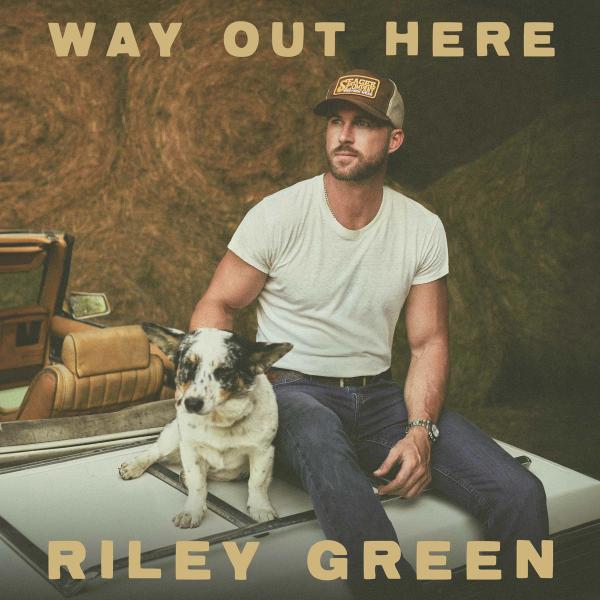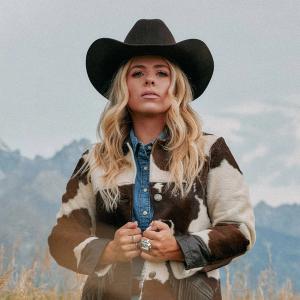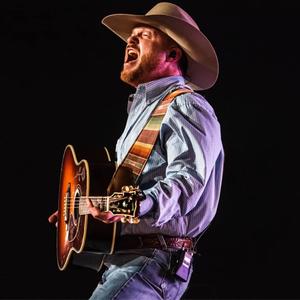




Link copied

Riley Green - 'Jesus Saves'
Label: Big Machine Group
Release Date: April 12th, 2024
Songwriter: Riley Green
Producer: Dan Huff, Scott Borchetta & Jimmy Harnen
The Background:
On January 6th, 2024, less than three months after releasing his lauded sophomore album, Ain't My Last Rodeo, Riley Green teased a brand new song documenting the story of a homeless man sitting by the side of the road he used to drive down.
The reflective track, which would later be titled, ‘Jesus Saves’, immediately struck a chord with listeners, with followers and fellow artists championing the storytelling depth and intricacy Riley laced into the lyrics. Under the video, Morgan Wallen commented, ’Love this brother’, while Jake Worthington simply wrote, ‘Country Music’.
Given what a prolific songwriter he is, Riley Green has been known in the past to leave fans hanging and decide not to release previously teased songs and demos until months or even years later (as was the case with the newly shared ‘Good Morning From Mexico’). Such is the strength of Riley Green's arsenal, many of these Instagram and TikTok song snippets never end up seeing the light of day.
Thankfully, though, Riley didn't keep us waiting too long for the studio version of ‘Jesus Saves’, which arrived on April 12th, 2024 as part of his seven-track Way Out Here EP.
The Sound:
With a song as lyrically visceral and striking as ‘Jesus Saves’, the spotlight will always fall on Riley Green's voice and the unfurling narrative. As a result, the composition is kept sparse throughout, with Riley's weighty, world-weary vocals intertwining with the gentle, deliberate strum of the accompanying acoustic guitar.
As ‘Jesus Saves’ progresses towards the heartbreaking climax, the production becomes more built-out, with a haunting, ethereal fiddle accentuating the anguish of the homeless man as he recalls the various misfortunes he's suffered.
The bare-bones feel of the track aligns with the rustic ambience that Riley Green brings to ‘Jesus Saves’. Riley sings from his trademark perspective of a down-home, blue-collar-worker, who then blossoms unexpectedly into a backwoods poet on tracks such as ‘Jesus Saves’, ’Numbers On The Cars’, ‘Ain't My Last Rodeo’ and more. The fact that he depicts these beautifully perceptive stories from the viewpoint of an everyman enhances their relatability, as is highlighted on ‘Jesus Saves’.
The Meaning:
“There was a man I used to pass
On my way into town
He was covered in dirt like the world had beat him down
I often wondered how he ended up like that
So one day, drivin' home, I pulled over to asked
I said, "Man, where'd did it all go wrong?"
He said, "Son, do you really wanna know?"
The curtain opens on Riley Green driving past a man he often sees by the side of the road on his route downtown. He uses the imagery of the mud he's cloaked in as a metaphor for the way in which the world has continually kicked him down into the dirt.
On this particular occasion, rather than driving on as usual, Riley decides to pull over and ask the man how he ended up in this position. It's sometimes said that people don't like to interact with homeless people because they don't like to acknowledge that this is a possible way in which their own life could work out in the future. Riley, however, wants to learn more about this man's situation, both to offer him some compassion and company, and perhaps to learn from any mistakes he made.
“My daddy left for another woman, moved off to L.A
My mama fought hard against that cancer, she died when I was eight
I finished school, my country shipped me off to war
When I came home, my whole world didn't love me anymorе”
As the man regales Riley with the story of his life, it quickly becomes clear that he's found himself homeless through no fault of his own. From his father leaving with a mistress to his mother dying from cancer when he was just eight years old, this man has suffered a horrific array of misfortunes. He explains how he was shipped off to war by the United States, and that when he returned home, there was nobody around that had been waiting for him or that could support him.
“It's hard to see all that when you're drivin' by
So I just write down, "Jеsus Saves"
'Cause there ain't no way I can fit that on a sign
I can't fit that on a sign”
After sharing this part of his backstory in such detail, the man shrugs his shoulders and outlines how passers-by wouldn't have time to read this, so he has to be content with writing simply, ‘Jesus Saves’. At the heart of this song is a criticism of the hurried nature of modern life, with compassion being thrown out the window in favour of business. It's a theme Riley often tackles in his music, as he celebrates the slower, more thoughtful pace of a life lived out in the sticks.
Additionally, it's touching that the homeless man has experienced so much hardship, yet still wants to convey a positive message of hope to those driving past by writing, ‘Jesus Saves’.
It serves as an important reminder to listeners that, as Riley himself underlined when he first shared the snippet, ‘You never know what someone else has been through in their life’. It brings to mind the famous Atticus Finch line from Harper Lee's To Kill A Mockingbird, “You never really understand a person until you consider things from his point of view...until you climb into his skin and walk around in it”.
“I took him to a dinner, I bought him a cup of coffee
He asked me if he could bum a couple dollars off me
He told me his story, I told mine
He said, "Thanks 'cause most folks around here would never take the time"”
In the second verse, Riley Green shares how he treated the man to some coffee and food in a nearby diner. They exchange their respective stories, with the man expressing his gratitude to Riley for his kindness, again making the point that most people nowadays sadly don't want to take the time to show this level of compassion.
“He said, "I lost my job down at the mill when that factory closed
Army stopped sendin' me them checks, the bank took everything I own"
Hitchhiked my way up to Chicago, the nights were too damn cold
I hopped a train, headed West 'cause I had nowhere else to go”
He goes on to share some more of his tragic story, telling Riley how he lost his job due to the factory being shut down, before the Army stopped sending him money for his service. The bank proceeded to take all his possessions as a result, leaving him with no choice but to hitchhike to Chicago, only to find the weather too hostile.
Throughout ‘Jesus Saves’, there is the overarching theme of this man's struggles arising due to reasons outside of his control. By writing the track in this way, Riley Green challenges the somewhat cold-hearted idea that some people tell themselves about homeless people, that they must've done something ‘wrong’ to deserve their fate, because this narrative is easier to accept than the notion that life is unpredictable and we could find ourselves in the same position.
“I probably would've wrote down a little more
If I could've find a bigger piece of cardboard
My brother Walter was my hero
But he was bad to drink
One night, he laid his Harley down
Near that Ohio Riverbank
Me and my first wife tried for kids when we were datin'
Hell, we even had baby names picked out
But little Walter didn't make it”
The final piece of the story pivots around the man's brother, Walter, who dies in a motorcycle crash. He and his wife endearingly decide to name their child after him, and he then delivers the crushing lyric, “But little Walter didn't make it”. It's unclear whether this means they had the child but it was stillborn or later died, or whether they were unable to have children in the first place. Either way, it's a devastating end to a tale that has no redemption arc or uplifting, feel-good conclusion. Riley focuses on the gritty reality, rather than attempting to sugarcoat it.
What has Riley Green said about 'Jesus Saves'?
When Riley shared the original acoustic snippet of ’Jesus Saves’, he expanded on the empathetic inspiration behind the track, “Wrote this song a couple nights ago… You never know what someone else has been through in their life. Hope y’all like it”.
As for the project ‘Jesus Saves’ was released as part of, Riley Green delved into the reasoning behind compiling these tracks into the Way Out Here EP, “We’ve been playing these new songs on the road and wanted to get them to the fans soon as possible. I’m always working on new music and have more coming throughout the year”.
For the full lyrics to Riley Green's ‘Jesus Saves’, see below:
“There was a man I used to pass
On my way into town
He was covered in dirt like the world had beat him down
I often wondered how he ended up like that
So one day, drivin' home, I pulled over to asked
I said, "Man, where'd did it all go wrong?"
He said, "Son, do you really wanna know?"
My daddy left for another woman, moved off to L.A
My mama fought hard against that cancer, she died when I was eight
I finished school, my country shipped me off to war
When I came home, my whole world didn't love me anymorе
It's hard to see all that when you're drivin' by
So I just write down, "Jеsus Saves"
'Cause there ain't no way I can fit that on a sign
I can't fit that on a sign
I took him to a dinner, I bought him a cup of coffee
He asked me if he could bum a couple dollars off me
He told me his story, I told mine
He said, "Thanks 'cause most folks around here would never take the time"
He said, "I lost my job down at the mill when that factory closed
Army stopped sendin' me them checks, the bank took everything I own"
Hitchhiked my way up to Chicago, the nights were too damn cold
I hopped a train, headed West 'cause I had nowhere else to go
It's hard to see all that drivin' by
So I just write down, "Jesus Saves"
'Cause there ain't no way I can fit that on a sign
There ain't no way to fit that on a sign
I probably would've wrote down a little more
If I could've find a bigger piece of cardboard
My brother Walter was my hero
But he was bad to drink
One night, he laid his Harley down
Near that Ohio Riverbank
Me and my first wife tried for kids when we were datin'
Hell, we even had baby names picked out
But little Walter didn't make it
It's hard to see all that just drivin' by
So I just write down, "Jesus Saves"
'Cause there ain't no way I can fit that on a sign
I can't fit all that on a sign”
For more on Riley Green, see below:





